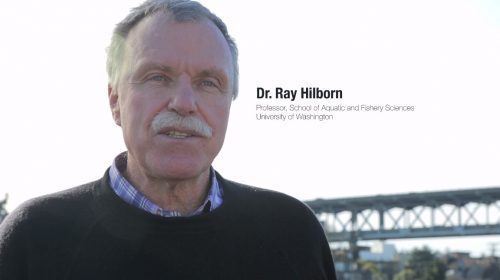WASHINGTON (Saving Seafood) — September 12, 2017 — Two members of Saving Seafood’s National Coalition for Fishing Communities (NCFC) testified before a key Senate Subcommittee today on the reauthorization of the Magnuson-Stevens Act.
The hearing was convened by Sen. Dan Sullivan (R-Alaska), Chairman of the Senate Subcommittee on Oceans, Atmosphere, Fisheries, and Coast Guard, and was the third in a series of hearings on the Magnuson-Stevens Act.
Lori Steele, Executive Director of the West Coast Seafood Processors Association based out of Oregon, and Greg DiDomenico, Executive Director of the Garden State Seafood Association based out of New Jersey, discussed the state of U.S. fishery laws and the needs of commercial fishermen.
In written testimony submitted to the Subcommittee, Ms. Steele said in part:
“Based on my prior experience with the New England Council and currently with the seafood industry on the West Coast, I feel confident the next MSA reauthorization can build on lessons learned from our past experiences in order to truly fulfill one of the fundamental and original goals of the MSA, emphasized in National Standard 1, the Act’s guiding principle – to prevent overfishing while achieving, on a continuing basis, the optimum yield from each fishery. From its beginning, the MSA has conserved, protected, rebuilt, and sustained marine resources in the U.S. Exclusive Economic Zone (EEZ). As we move forward with this next reauthorization, we have an opportunity to better conserve, protect, and sustain the people, the economies, the culture, and the communities that rely upon healthy and abundant fisheries.”
Read Ms. Steele’s full testimony here
In written testimony submitted to the Subcommittee, Mr. DiDomenico said in part:
“We believe there are four main threats to the domestic fishing industry that are consistent with the concerns of this Subcommittee. They are as follows: (1) the status of the implementation of the Magnuson Stevens Fishery Conservation and Management Act (MSA), specifically the 2006 Amendments which were interpreted to be overly precautionary and limit management flexibility; (2) the growing efforts of the environmental industry to curtail commercial fishing access via use of the Antiquities Act, National Marine Sanctuary designations, and marine planning created pursuant to the National Ocean Policy; (3) the chronic inability to estimate and manage recreational fishing mortality; and (4) the potential for unfair implementation of catch shares.”
Read Mr. DiDomenico’s full testimony here
Read more about the hearing here
Watch a livestream on the Senate Commerce Committee website beginning at 2:30 p.m. ET



